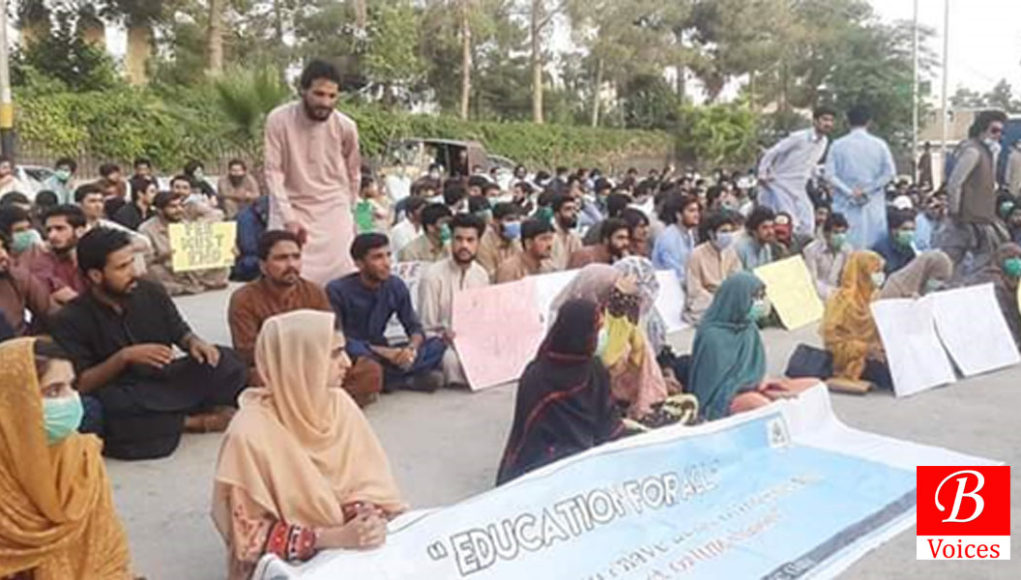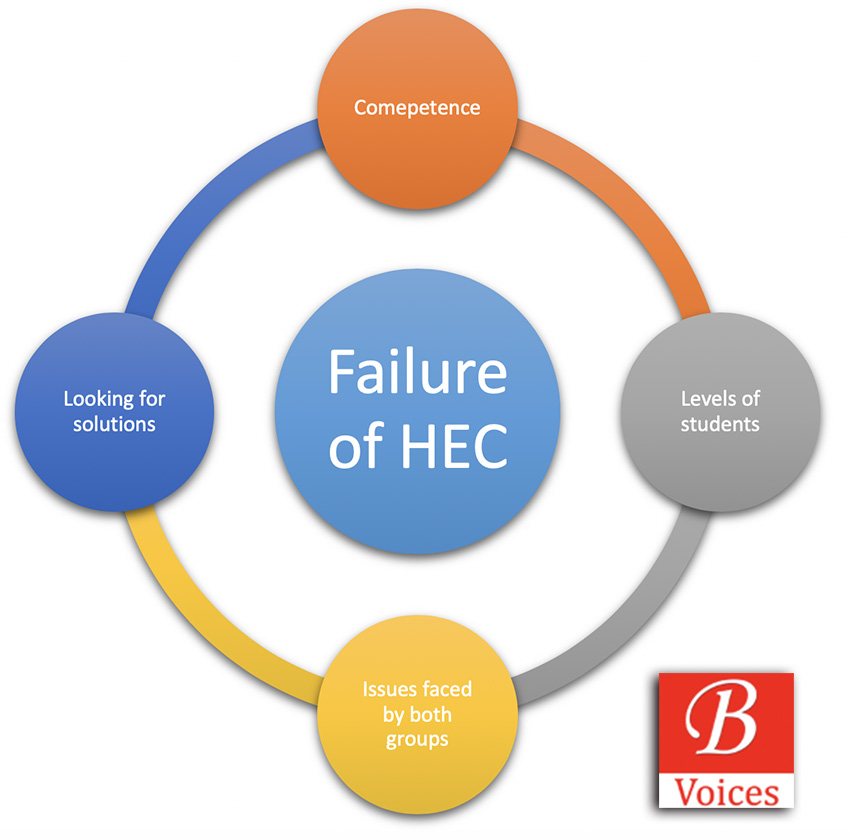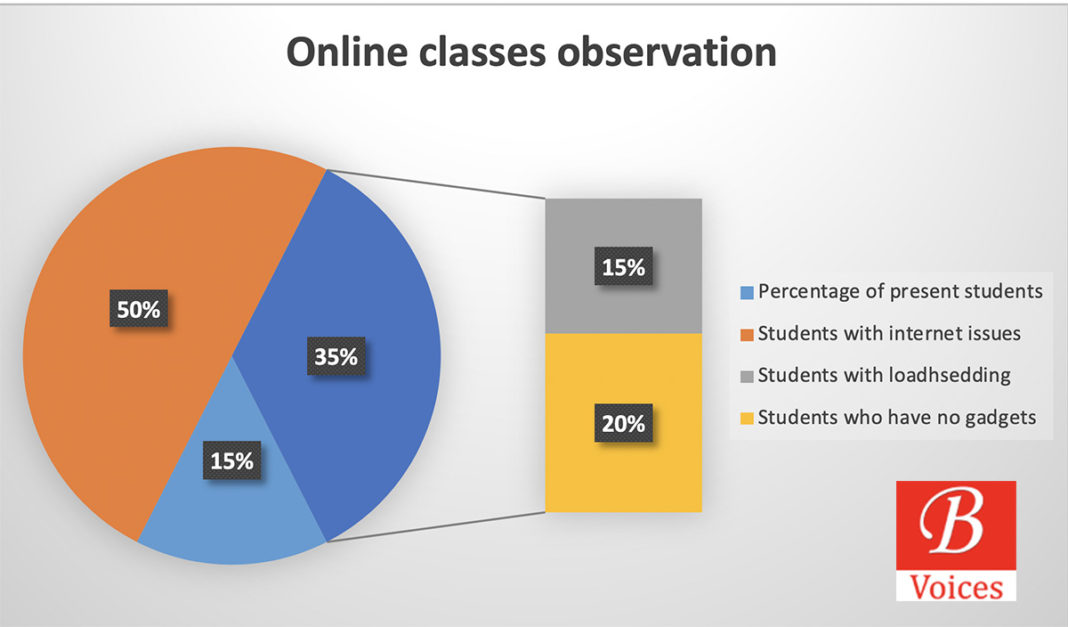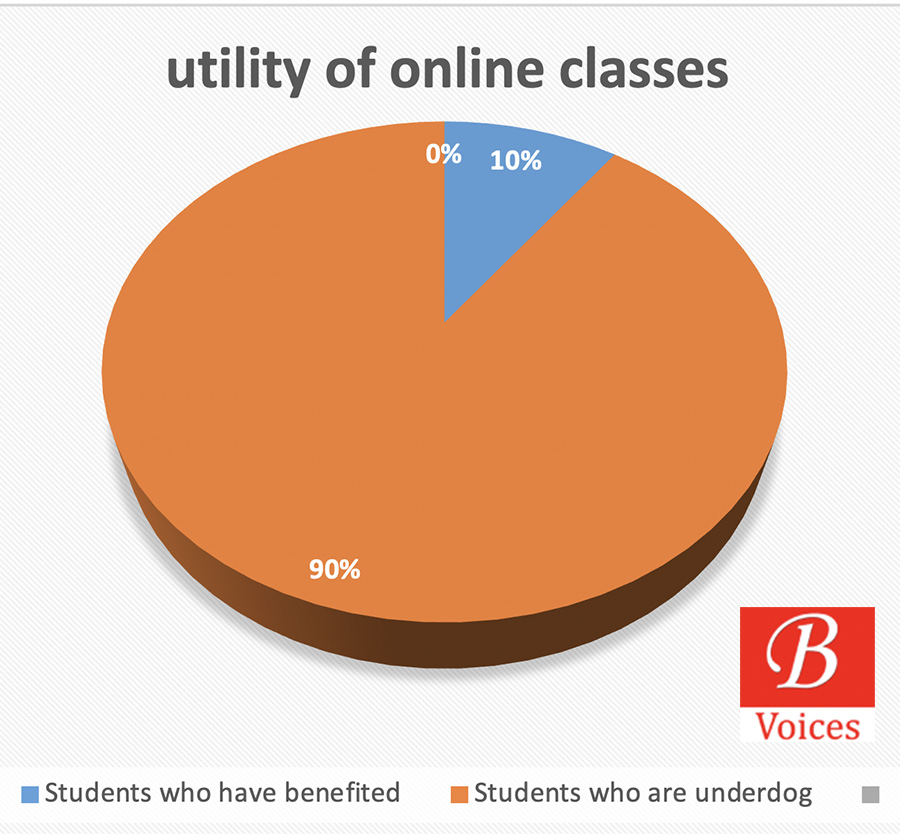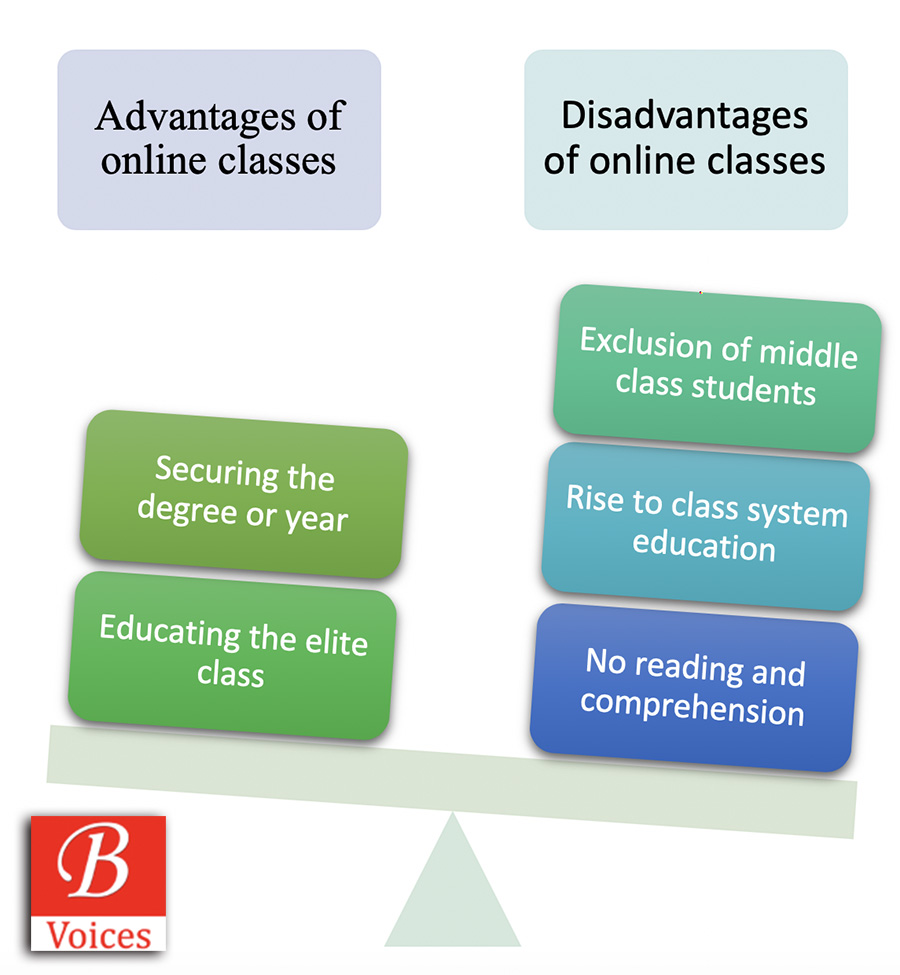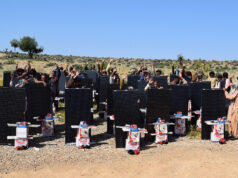Yasmeen Baloch
Punjgur has a lovely morning to wake up with. But, the morning has been a nightmare for me. Missing online classes is the doze served in breakfast and reaching home early in the scorching heat is the part of lunch I am served with! The bumpy road—not the actual road I travel through—is full of non-availability-of-internet speed breakers, and threats of teachers received after reaching late in class. These all ingredients make my breakfast, brunch, lunch and dinner as tasty as every ‘delicious dish’ for patients whose throat is home to the most dangerous virus of the world!
The world is surrounded by numerous challenges and implications. Researchers have been trying to find alternative remedies to find possible solutions. Like any other advancement, a great leap in technology, particularly in terms of the internet, has strengthened means of communication which has made the world a global village.
However, on the map of the world, there are areas where people are unaware of the word technology yet. The internet facilities are getting advanced day by day and it has become indispensable for human beings. People’s relying on E-Banking, E-commerce and other online systems have become more advantageous with the advancement of technology. Similarly, during the times of advancement, Pakistan is set to face another challenge of online education during the pandemic. The online education system has been a controversial issue in Pakistan. Online classes have been debated and politicized for some reason.
HEC has failed to consider the competence of students and has not considered the core issues before the announcement of starting online classes.
After the outbreak of COVID-19, education, along with other departments, became the underdog. Without knowing the concerns of the students, HEC initiated online classes. Online classes need twenty-four hours of electricity and a proper internet connection. Unfortunately, Pakistan has none. Even the most urbanized cities such as Karachi and Lahore are deprived of uninterrupted electricity. Load-shedding disrupts the official works continuously. In Balochistan, both electricity and internet act as ghost-facilitators in many areas. Students have migrated to Quetta for their education because 99% of the students belong to the middle class and cannot afford to buy generators, solar plates, UPS, batteries, laptops and internet devices. The unavailability of the said facilities has caused serious issues for students.
Unfortunately, the protests were immediate as soon as online classes announcement came public. Retaliation to the protests was ruthless which led to baton charge on protesting students. Online classes have collective effects on both students and teachers—both are facing difficulties during online classes.
Generally, only 35% of students can attend the online classes, and the rest of the students are facing either internet or load-shedding issues. The following are some of the frequent issues faced by students.
1) Students are unable to attend the classes due to the non-availability of the internet.
2) Many students have frozen their semesters and burdened their studies due to load shedding.
3) Students are unable to print out notes and study them because many of the students have no printers.
4) Studies of the students are disturbed because due to the stereotypes, many girls have no cell phones and laptops.
5) Students cannot go back to the hostels and attend online classes because most of the students are not residents of Quetta and Karachi.
6) Many students compel their parents to let them go to their friend/family members’ houses for Wi-Fi and during such hectic routine, due to the tripping of electricity; teachers don’t allow them to enter Zoom Online class that is a big issue.
7) Most of the teachers are taking screenshots of participants for attendance and this irresponsible act has depressed the students. They are threatened to however manage online classes.
8) Teachers assign homework to students and mark them for GPA but most of the students are not taking classes due to the internet and their education is jeopardized.
To resolve these issues, the Higher Education Commission should call for a meeting with students and teachers given the fact that Vice-chancellors are not the ones who teach the students. HEC’s planning does not include students who can discuss the issues. There are two ways to solve the issue of online classes during the pandemic. Either student should stop taking classes or HEC, students, teachers, and the government should come forward to address the hurdles for the sake of the future of the nation. The loss of education for students is equal to the loss caused by the pandemic.
Disclaimer: Views expressed in this article are those of the author and Balochistan Voices not necessarily agrees with them.
Share your comments!


